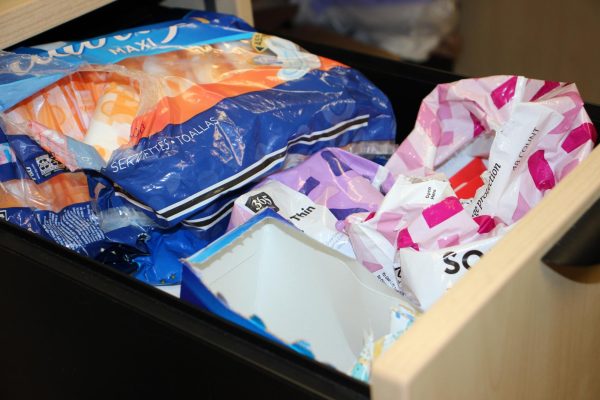The side hustle
Why WSHS teachers pick up extra jobs
One of several Spartan teachers who pursues work outside White Station, Rachel Kannaday maintains an embroidery business called Sew Southern Style. This business, for which Kannaday embroiders everything from children’s clothing to towels to tote bags, is a source of supplementary income outside of teaching.
Between planning lessons, grading papers and lecturing, the average teacher is no stranger to a busy school day. What often goes unseen, however, are the behind-the-scenes of a teacher’s life.
For Biology and Anatomy and Physiology teacher Rachel Kannaday, her after-hours routine consists of working at Talbots and operating an embroidery business called Sew Southern Style.
“I have a responsibility to my kids to make sure our bills are paid and they have food and [to] hit all the checkmarks of a mom,” Kannaday said. “…In order to do that and make some space in the budget for my things, I needed more income.”
Chemistry teacher George Richardson, who also referees soccer and works as an adjunct professor at Southwest Tennessee Community College, finds a different reason for pursuing outside work.
“I wanted to increase my employability by gaining experience at a college level,” Richardson said. “I’ll probably be retiring from White Station in 5-6 years, so I want to have more avenues for employment.”
AP and DE science teacher Dr. Chikezie Madu finds that his side jobs as an online professor for Faulkner University, adjunct lecturer for the University of Memphis and contractor for both the University of Tennessee Health Science Center and College Board often leave him with minimal free time.
“I like being busy… I get a drive and rush from just doing stuff, which is probably why I’ll never retire,” Madu said. “If I’m not moving, I don’t feel a sense of accomplishment.”
Regardless of the job, Madu claims there is one just ingredient needed for a teacher to succeed with side work: motivation.
“If [teachers] don’t have a passion for the extra job they’re doing—if it’s just for the money— that’s when they get burned out,” Madu said.
Your donation will support the student journalists of White Station High School. Your contribution will allow us to purchase equipment and cover our annual website hosting costs.






































